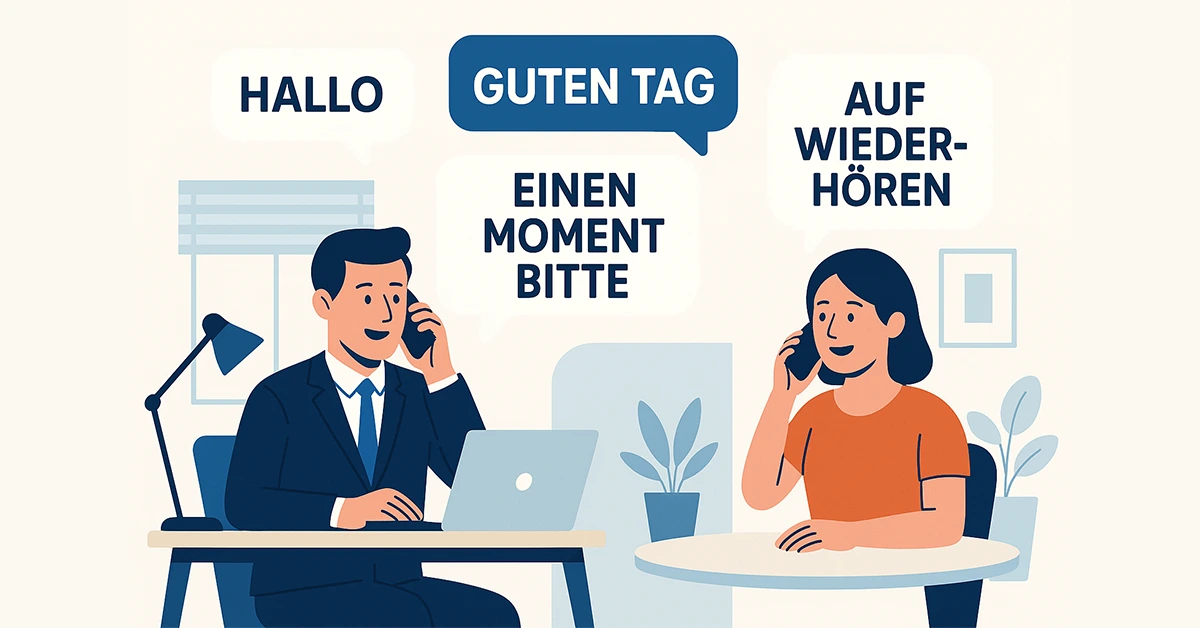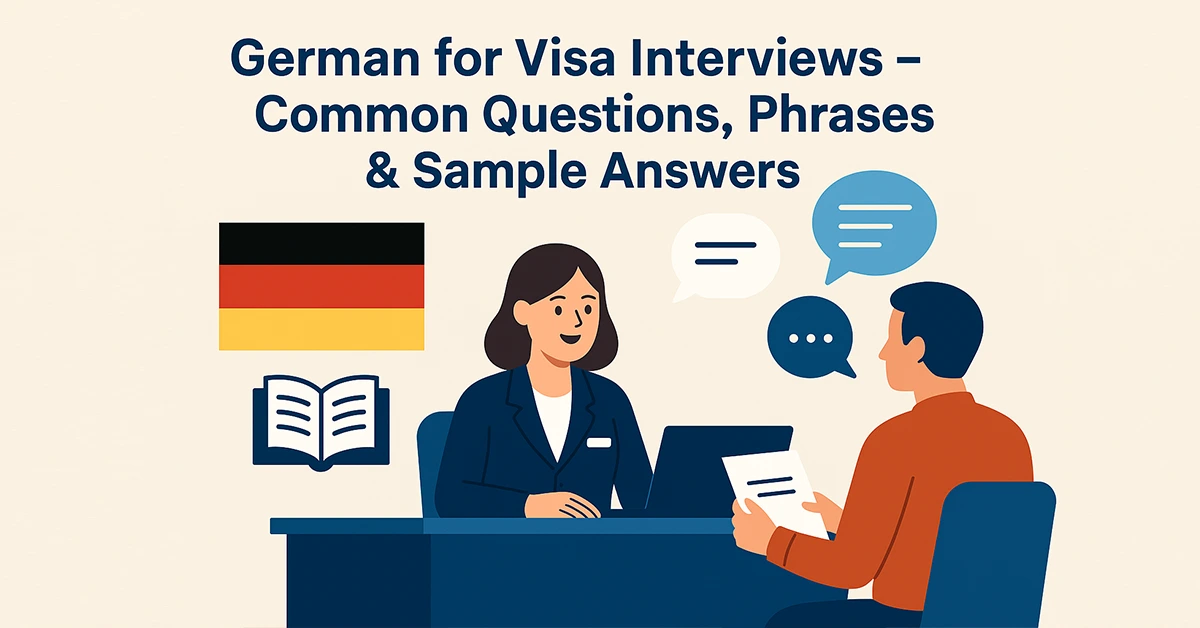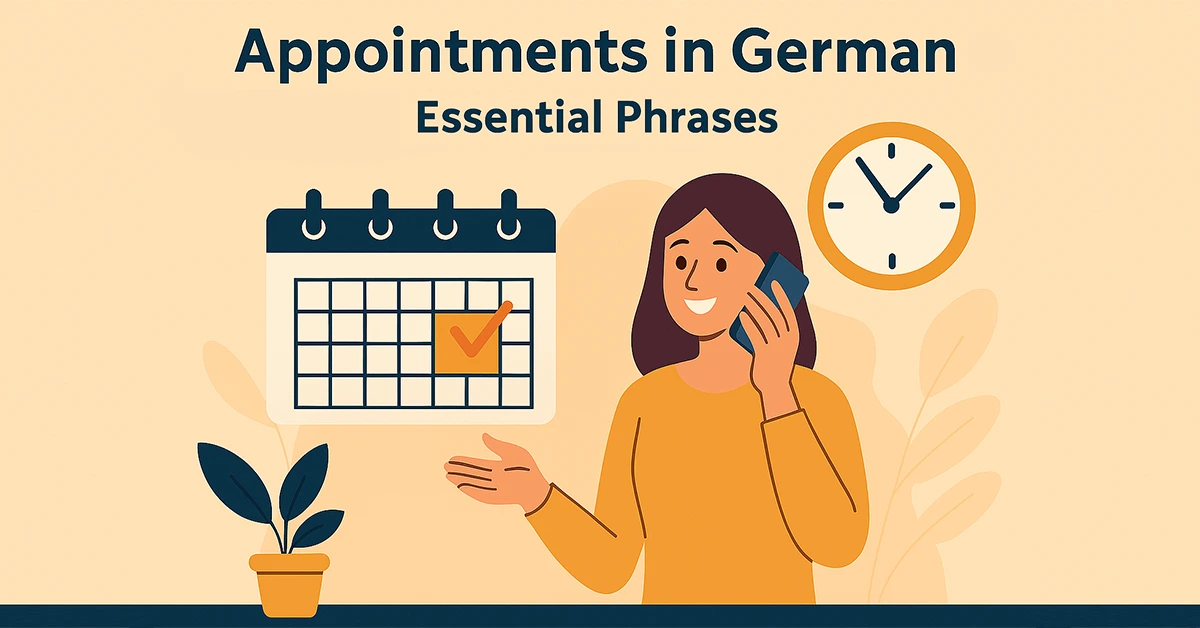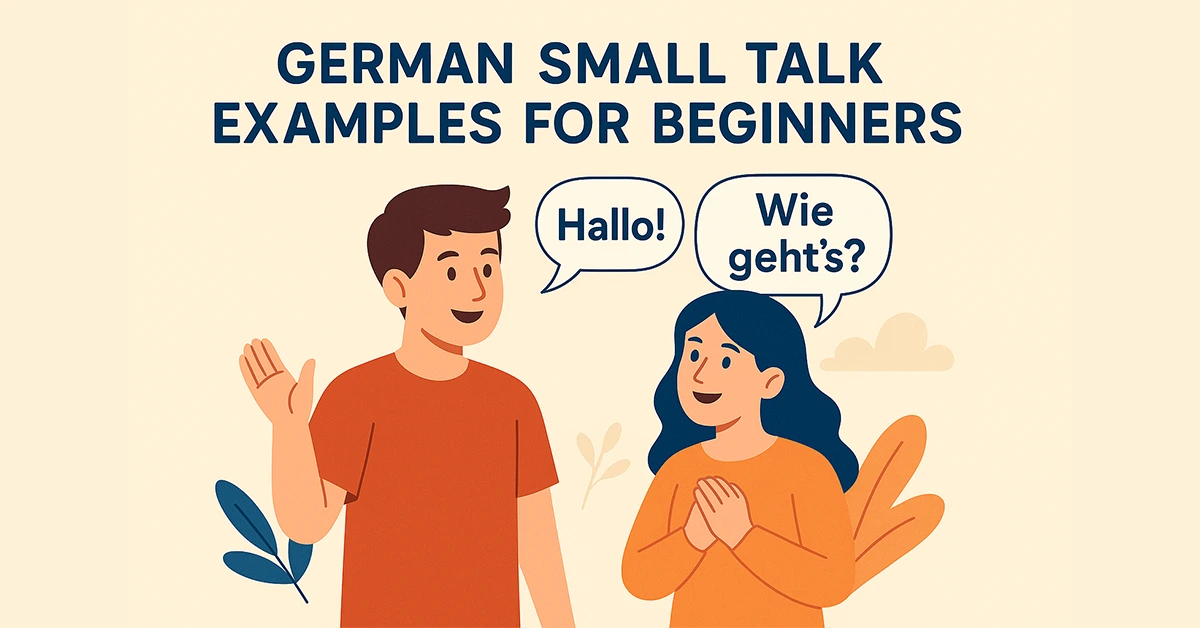German speaking practice
-

German Phone Call Phrases – Speak Confidently + Free PDF
Master German phone calls with key phrases and dialogues for daily and business use. Download the free PDF cheat sheet and improve your speaking confidence.
-

German for Visa Interviews – Key Phrases and Sample Answers
Learn essential German for visa interviews with sample questions, answers, and phrases to help you pass your Germany visa interview with confidence.
-

Making Appointments in German – Essential Phrases
Learn 50+ essential German phrases & real-life dialogues for making appointments. Doctor, salon, office & more. Download your free PDF cheat sheet!
-

German Small Talk Examples for Beginners
Learn how to master German small talk with practical examples, beginner-friendly dialogues, and key phrases for real-life situations. Boost your confidence in everyday German conversations!